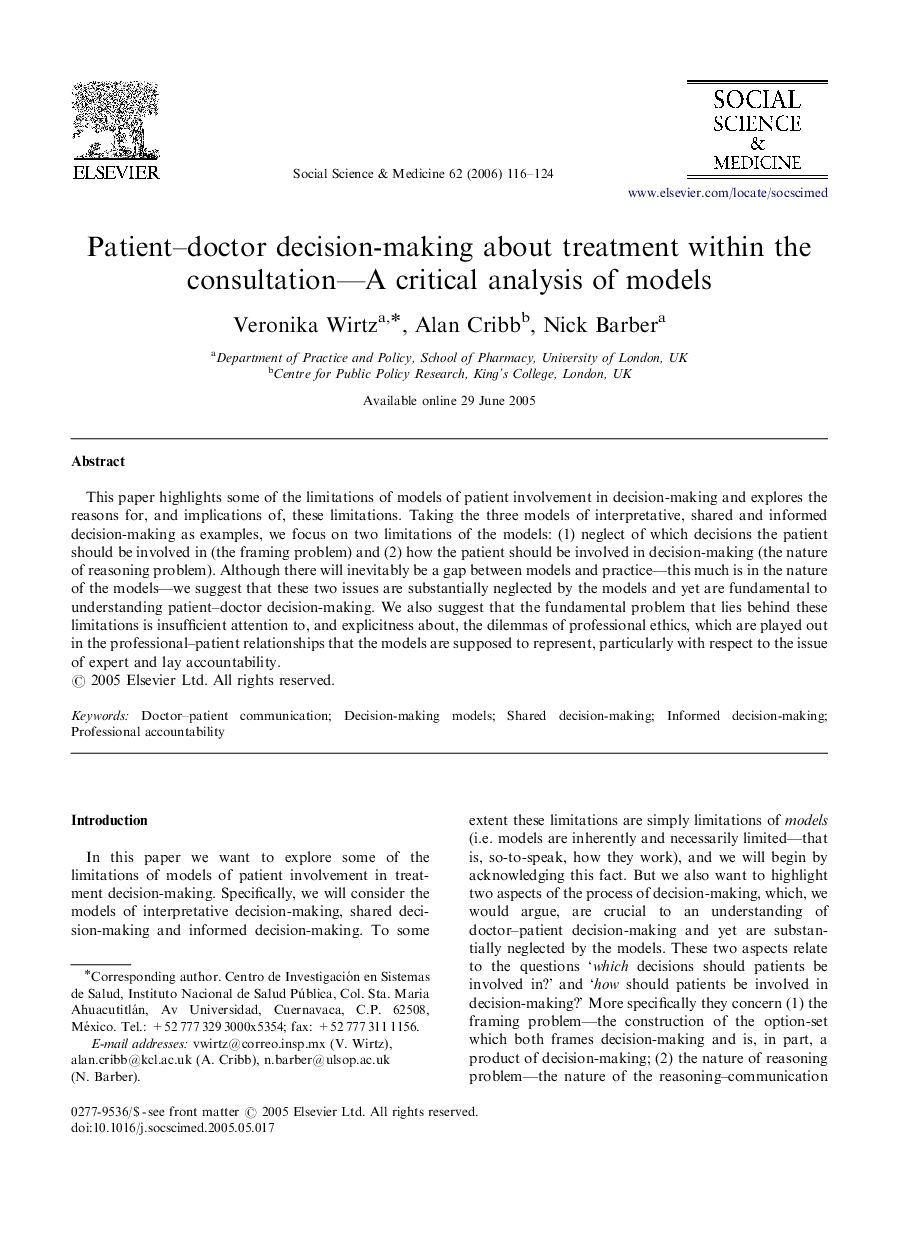| Article ID | Journal | Published Year | Pages | File Type |
|---|---|---|---|---|
| 955168 | Social Science & Medicine | 2006 | 9 Pages |
This paper highlights some of the limitations of models of patient involvement in decision-making and explores the reasons for, and implications of, these limitations. Taking the three models of interpretative, shared and informed decision-making as examples, we focus on two limitations of the models: (1) neglect of which decisions the patient should be involved in (the framing problem) and (2) how the patient should be involved in decision-making (the nature of reasoning problem). Although there will inevitably be a gap between models and practice—this much is in the nature of the models—we suggest that these two issues are substantially neglected by the models and yet are fundamental to understanding patient–doctor decision-making. We also suggest that the fundamental problem that lies behind these limitations is insufficient attention to, and explicitness about, the dilemmas of professional ethics, which are played out in the professional–patient relationships that the models are supposed to represent, particularly with respect to the issue of expert and lay accountability.
